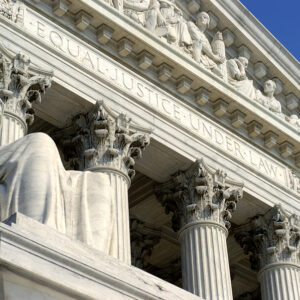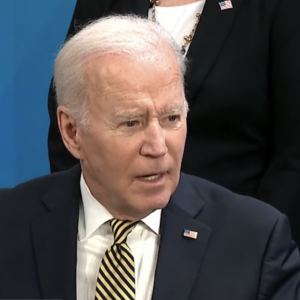MARESCA: Collegiately Supreme

July is fireworks season in Pennsylvania, and fireworks throughout liberaldom are always on display, especially when things fail to go their way. In yet another historical moment for the U.S. Supreme Court, its three recent decisions dealing with academia have only added to the left’s anguish. That popping noise you hear outside is the heads of Marxist Democrats bursting in air, giving proof their hypocrisy is still there.
The Supreme Court’s first decision struck down President Joe Biden’s student-loan forgiveness program, a vote-generating promise that would wipe out $400 billion in federal student loans. The first mistake was calling it “loan forgiveness.”
Since many degreed baristas, waiters, and fast-food workers overpaid for their “degrees,” such a promise emanating from Biden’s basement campaign headquarters was more fireworks that turned out to be a dud. However, forgiveness has nothing to do with it; rather, it would strictly be a debt transfer as someone must pay. Asking those without college degrees to pay off loans for those who do and now want to escape their obligations is immoral.
You borrowed the money–you pay it back.
The unconstitutionality of the “loan forgiveness” ploy was so obvious even Nancy Pelosi acknowledged it when she was speaker of the House.
Since inflated tuition costs remain, universities should underwrite student loans through their precious endowments. Perhaps then tuition prices would stabilize as the problem fixes itself. Biden once said, “Paying taxes is patriotic,” so why aren’t endowments taxed?
There is nothing like skin in the game to get serious about problem-solving.
The Supreme Court then moved on to Students for Fair Admissions v. Harvard and Students for Fair Admissions v. University of North Carolina. Those landmark decisions struck down raced-based college admissions as unconstitutional, putting an end to Affirmative Action admissions.
For six decades, Affirmative Action was a euphemism to mask admitting students due to race and was best described by President George W. Bush as “the subtle racism of lowered expectations.”
When one benefits due to their race, another will suffer for theirs. That is about as unAmerican as it gets, and the Supreme Court finally tackled it head-on. Justice Clarence Thomas wrote, “Universities’ self-proclaimed righteousness does not afford them license to discriminate on the basis of race.”
The decisions ended a half-century of muddled Supreme Court rulings that refused to engage the issue head-on. The six-justice majority that halted our nation’s slide into further racial balkanization is a very thin line of defense. Given such decisions must advance to the Supreme Court is concerning. Sadly, much of the federal judiciary has little interest in dissenting from new orthodoxies like wokeism.
America must return to meritocracy. Why do we celebrate merit solely on the athletic field? Ending race-based Affirmative Action is the first step.
Not everyone agrees.
Justice Sonia Sotomayor, who describes herself as a “wise Latina,” in her dissenting opinion, demonstrates just how imprudent she truly is by turning the plainspoken 14th Amendment on its head. Sotomayor wrote: “The Court cements a superficial rule of colorblindness as a constitutional principle in an endemically segregated society where race has always mattered and continues to matter.”
What Sotomayor called “a superficial rule of colorblindness” the Constitution calls the 14th Amendment. Sotomayor’s insipid response proves she is another byproduct of Affirmative Action while fighting racism with more racism.
Such denouncements imply Blacks and Hispanics are incapable of progressing on their own unless handed unearned advantages. What successful individual wants to be associated with the bigotry of low expectations when they are the genuine article? Moreover, discriminating because of race for arbitrary quotas was never a recipe for success.
Martin Luther King Jr.’s belief in valuing character over race remains the gold standard but has been lost on so many since his tragic death. King understood that a diverse democracy cannot survive by generating racial resentment by favoring one group over another.
Democrats who support Affirmative Action oppose school choice – a proven way to mitigate disadvantages. Rather than criticizing the decisions, how about fixing the failed public school systems through excellence in K-12 education by weeding out bad teachers and administrators while including school choice, vouchers, and incentivize compensation?
After a six-decade run, change will have its growing pains. Equality of opportunity is the American creed; these court decisions are the cornerstone for achieving that for all.




